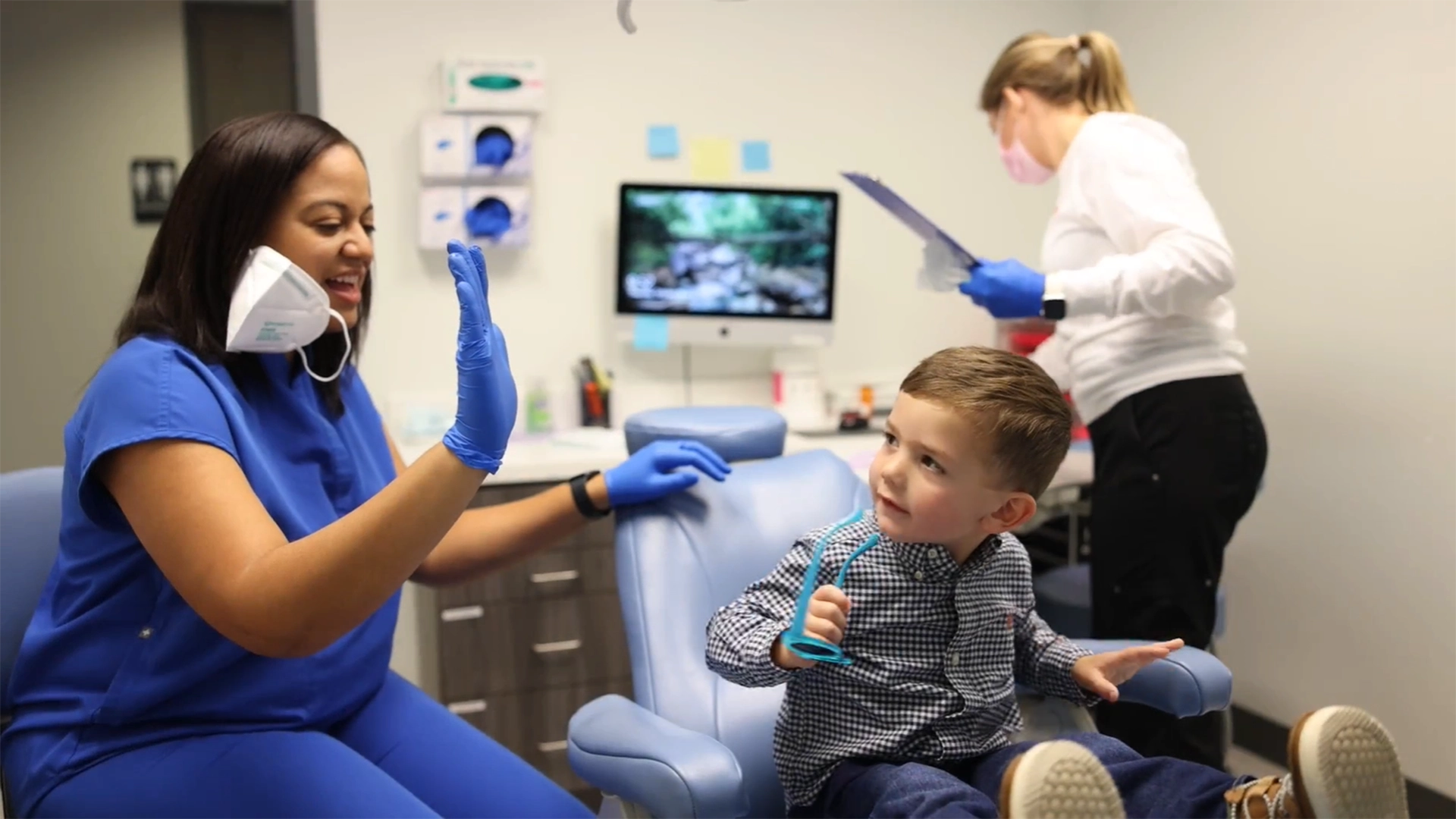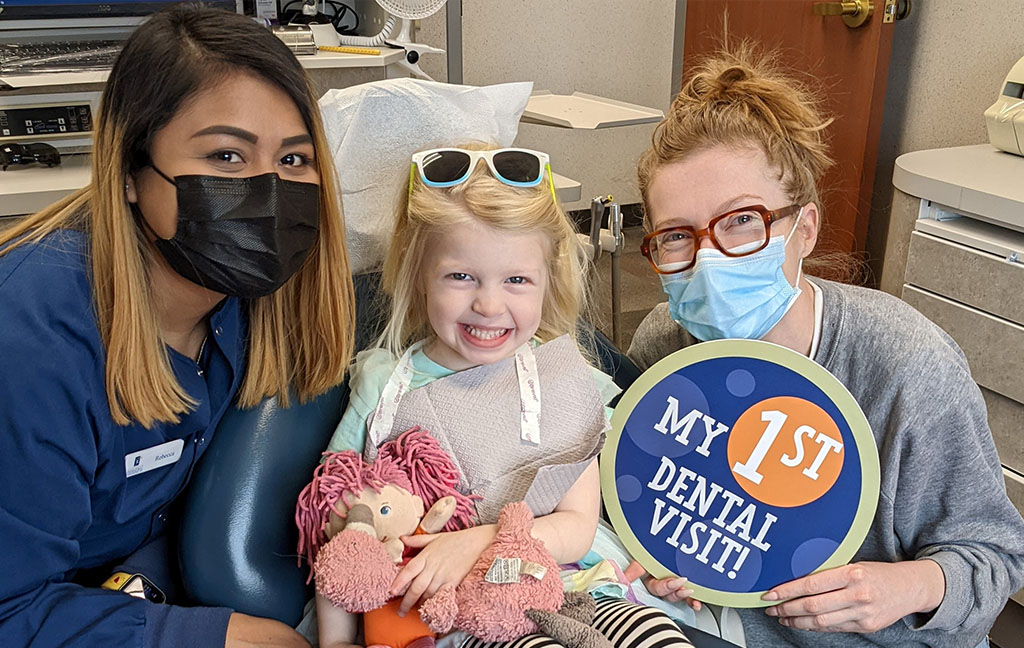Navigating Common Pediatric Dental Issues: An Extensive Appearance at Preventive Dental Treatment for Kids
Dealing with pediatric oral concerns is essential for fostering long-term dental health in children. The importance of preventive treatment can not be overemphasized, as it prepares for reliable oral health practices and nutritional options that minimize usual issues such as dental caries and gum tissue condition. When to initiate oral check outs and what practices to embrace can encourage parents to take aggressive measures, recognizing. Nevertheless, numerous moms and dads remain unaware of the specific steps that can be taken to guard their children's oral health and wellness. Checking out these strategies discloses essential insights that might considerably influence their child's future health.
Typical Pediatric Dental Issues
Kid's dental wellness is essential for their total wellness, yet various concerns can arise throughout their developing years. Among one of the most widespread problems are oral cavities, frequently called cavities, which can occur as a result of poor oral health and too much sugar consumption. This problem can lead to discomfort, infection, and subsequent difficulties if left unattended.
One more common issue is malocclusion, where teeth are misaligned. This can arise from genetic elements, very early loss of key teeth, or thumb-sucking habits. Malocclusion might not just influence a youngster's appearance but can additionally harm chewing and talking, necessitating orthodontic treatment.
Periodontal condition, although commonly neglected, is another considerable problem for youngsters (kid dentist near me). Gingivitis, the beginning of gum tissue illness, can develop from plaque build-up and might result in more significant conditions if ignored
Additionally, dental trauma is common among active youngsters, usually arising from falls or sporting activities injuries. Such incidents can cause cracks or dislodgement of teeth, requiring instant treatment to protect against long-term damages.
Recognizing these usual pediatric oral problems is critical for making certain timely treatment and preserving optimum dental health and wellness for youngsters.
Significance of Preventive Treatment
Preventative care plays a vital role in keeping youngsters's dental health and alleviating the dangers associated with common issues like cavities, malocclusion, and periodontal condition. By prioritizing preventative procedures, parents can significantly minimize the probability of their youngsters experiencing these dental troubles, which can cause pain, expensive therapies, and long-term wellness issues.
Regular dental examinations are necessary for early detection of potential issues. Throughout these check outs, oral professionals can keep track of the growth of jaws and teeth, offer tailored advice, and use needed precautionary treatments such as sealers and fluoride varnishes. These interventions assist secure versus decay and advertise optimum dental health and wellness.
Furthermore, a solid foundation in preventive treatment promotes positive attitudes towards dental health in youngsters. By instilling healthy habits early on, such as routine brushing and the significance of a balanced diet, parents can motivate long-lasting practices that contribute to general well-being.
Efficient Oral Hygiene Practices
Establishing reliable oral health methods is crucial for guaranteeing that kids maintain healthy and balanced teeth and gum tissues throughout their developmental years. Moms and dads must begin by presenting dental care as early as the eruption of the very first tooth. Utilizing a soft-bristled tooth brush with a small head, moms and dads should gently clean their kid's teeth twice a day with a fluoride toothpaste appropriate for their age.

Normal dental check-ups, preferably every 6 months, aid check oral wellness and establish a regimen of filling preventive treatment. Furthermore, mentor children the significance of brushing for at the very least two minutes, concentrating on all surfaces of the teeth, and using a timer or tune can make the procedure delightful.
Motivating kids to take responsibility for their oral hygiene promotes lifelong habits. By instilling these methods early, moms and dads can considerably lower the danger of tooth cavities and gum condition, leading the way for a lifetime of oral health and wellness.
Dietary Considerations for Dental Health And Wellness
While routine dental hygiene is important for maintaining oral health, dietary selections additionally significantly affect the problem of children's teeth and gums. A well balanced diet rich in use this link necessary nutrients can enhance enamel and assistance overall oral health.
On the other hand, extreme consumption of sugary snacks and drinks can lead to tooth degeneration and dental caries. Bacteria in the mouth feed upon sugar, producing acids that strike tooth enamel (kid dentist near me). Parents must encourage healthier treat alternatives, such as fruits, vegetables, and whole grains, while restricting sugary deals with
Encouraging kids to drink water, particularly fluoridated water, can even more promote oral health and wellness by washing away food bits and counteracting acids. In summary, an all-round diet is a fundamental element of preventative dental care for children.
When to Visit the Dentist
Normal oral visits are important for preserving optimum oral health in youngsters. The American Academy of Pediatric Dentistry suggests that children have their initial dental appointment by the age of one or within six months after their initial tooth emerges. Early check outs enable the establishment of a dental home, promoting a trusting relationship between the youngster and the dental professional while assisting in preventative treatment.
Routine examinations should happen every 6 months to check the growth of the kid's teeth, evaluate oral hygiene methods, and apply precautionary treatments such as fluoride varnishes and oral sealers. Additionally, parents need to arrange immediate appointments if they notice any type of indicators of dental problems, such as toothache, sensitivity, swelling, or discoloration, as these may indicate cavities or various other worries needing timely focus.
Children with special healthcare demands or a background of oral problems may require more frequent visits. By sticking to these standards, moms and dads can aid make sure that their kids keep a healthy and balanced smile and develop great dental practices that last a lifetime. In general, routine oral visits are essential for very early detection and intervention, which can dramatically influence long-lasting dental wellness end results.
Verdict
In final thought, dealing with pediatric wikipedia reference oral concerns with preventative treatment is vital for fostering long-lasting oral health. Early intervention, coupled with efficient dental health practices and a well balanced diet plan, dramatically mitigates the threat of tooth cavities and gum tissue condition. Routine oral brows through play a critical role in the timely identification of prospective issues, guaranteeing that kids develop healthy and balanced routines from a young age. By prioritizing these actions, moms and dads can add to their kids's total well-being and oral success.
